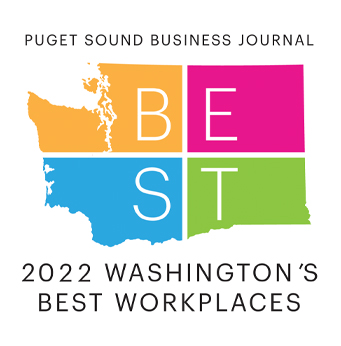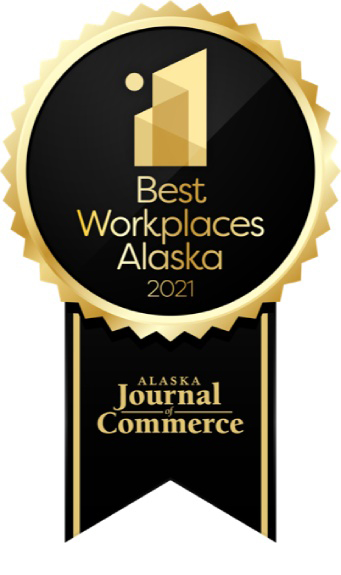Agency Guidance – National Emergency Extended Time Frames
May 1, 2020
The Department of Labor (DOL) and the Department of Treasury (IRS) jointly issued a final rule extending several specific notice time frames applicable under HIPAA, COBRA, and ERISA. The rule also extends the time frames for COBRA elections, COBRA payments, and HIPAA special enrollments. In addition to the final rule, the DOL issued Disaster Relief Notice 2020-01, indicating there will be leniency regarding enforcement of the timing and delivery method for all disclosures required under ERISA and confirming the extended filing deadline of July 15, 2020, for Form 5500 and Form M-1 filings due between April 1st and July 15th, 2020.
This Benefit Alert provides an overview of new government rules which impact the administration of COBRA and HIPAA. While we believe these rules may be well-intended, we also think they may cause some confusion. We are providing you with what we know at this time and will keep you appraised as we learn more. Please let us know if you have any questions and we will do our best to answer them.
Final Rule
A National Emergency was declared as of March 1, 2020. During the current National Emergency, the final rule allows additional time for certain notices to be provided by employers, administrators, employees, and other plan participants. The rules apply broadly to all employer-sponsored benefits subject to ERISA and COBRA. The Department of Health & Human Services (HHS) has indicated that similar relief will be available to non-federal governmental plans as well.
For the period of time beginning March 1, 2020, until 60 days after the National Emergency is over (or such other date as announced by the agencies), all group health plans, disability plans, other employee welfare benefit plans, and employee pension plans must disregard this time period (the “Outbreak Period”) when administering plans and allowing employees and other plan participants to exercise certain rights as described below.
HIPAA Special Enrollment Rights
Under existing rules, employees who want to exercise HIPAA special enrollment rights upon a loss of coverage or acquisition of a dependent through marriage or birth/adoption are typically required to provide notice to the plan within 30 days of the event in order to enroll mid-plan year. For loss of Medicaid/CHIP coverage, or becoming newly eligible for a Medicaid/CHIP subsidy, the notice must be provided within 60 days of the event in order to enroll mid-plan year. If enrollment is requested within the required time frame, coverage must be made available no later than the1st of the month following receipt of the notice, except in the case of a birth/adoption, in which case coverage must be made available retroactively to the date of birth or adoption.
NOTE: The extension of notice timelines due to the National Emergency means that eligible employees would be able to request a HIPAA special enrollment for a much longer period of time than normally allowed, and the group health plan would be required to allow a mid-plan year enrollment for eligible participants.
Example: Assume the National Emergency ends May 31, 2020, and therefore March 1, 2020 – July 30, 2020 is disregarded as the Outbreak Period for purposes of counting the 30-day (or 60-day) notice requirement. If an employee has a baby May 15, 2020, the employee could request enrollment for herself, her spouse, and the child (retroactive to May 15, 2020) as late as August 29, 2020 (30 days after July 30, 2020). However, the employee would be responsible for any employee contributions for coverage back to May 15, 2020.
COBRA
According to current COBRA rules, a variety of timing requirements apply in the administration of COBRA continuation coverage.
- Notification of qualifying events is typically required by the employer within 30 days of the qualifying event, or by the employees (or dependent) within 60 days of the qualifying event. Notification of a disability determination is also required within 60 days.
- The plan administrator is then required to provide an election notice to qualified beneficiaries (QB) within 14 days of receiving notice of a qualifying event.
- Upon triggering COBRA continuation rights, QBs must be given at least 60 days to elect COBRA continuation coverage. If COBRA coverage is elected, COBRA participants must be provided with at least 45 days from the date of electing COBRA to make the first premium payment; and thereafter, a 30-day grace period must be provided for COBRA premium payments.
NOTE: The extension of COBRA election and payment timelines due to the National Emergency means that eligible participants would be able to wait to elect COBRA for a longer period than is normally allowed. Additionally, employers will not be allowed to terminate COBRA coverage due to nonpayment for extended periods of time. The rules do not address whether health insurance companies will be required to extend COBRA coverage when no payment is made by a COBRA participant, so until additional guidance is issued, or an agreement is made with the carrier, employers should continue to pay the premiums to the carriers even if they do not collect the COBRA premium from the COBRA participants by the normal deadline.
Example: Assume the National Emergency ends May 31, 2020, and therefore March 1, 2020 – July 30, 2020 is disregarded as the Outbreak Period for purposes of counting applicable notice and payment requirements under COBRA rules.
- If a qualifying event (e.g. loss of coverage due to a reduction in hours) occurs April 30, 2020, requirements to notify the administrator and provide an election notice would be considered timely so long as an election notice is provided to qualified beneficiaries by September 12, 2020 (44 days following the qualifying event). The qualified beneficiaries would have 60 days from July 30, 2020, or from when the election notice is provided, whichever is later…and then an additional 45 days from that time to make the initial payment for COBRA premiums due.
- COBRA participants prior to March 1, 2020 could fail to make monthly COBRA premiums for March through the end of this National Emergency. So long as a COBRA participant makes premium payments for March – July no later than August 29, 2020 (30 days after July 30, 2020), COBRA coverage must be available for all months for which the premium is paid.
Claims Procedures & External Review Processes
Plans subject to ERISA and non-grandfathered group health plans are subject to rules addressing procedures and time frames for filing benefit claims, appealing adverse benefit determinations, and requesting external reviews. Most employers rely on their carrier or third-party administrator (TPA) to administer claims appeals. Employers should check with their carrier or TPA to make sure that they are extending appeal timelines for participants.
Example: Assume the National Emergency ends May 31, 2020, in which case March 1, 2020 – July 30, 2020 is disregarded as the Outbreak Period for purposes of any time frames which apply to filing benefit claims, appealing adverse benefit determinations or requesting external reviews. Claims filed or appeals requested within the required time frames following July 31, 2020 would be considered timely and should be processed accordingly.
Disaster Relief Notice 2020-01
In addition to the specific relief provided in the final rule described above, the DOL also provided a broad extension for all other notices and disclosures required under ERISA (e.g. SPDs, SBCs, initial COBRA notice, SARs, WHCRA notice). Plan sponsors will not be considered non-compliant during the Outbreak Period for failing to provide ERISA-required notices and disclosures within generally required time frames so long as the plan sponsor acts in good faith and furnishes the notice or disclosure “as soon as administratively practicable under the circumstances”. Plan sponsors are permitted to use alternative electronic means of communicating such notices or disclosures including email, text messages, and continuous access websites, so long as the plan sponsor reasonably believes participants have effective access to electronic means of communication.
Summary
The examples provided in the guidance assumed that the National Emergency ends April 30, 2020. Obviously that has not happened, so we are using May 31st as a sample end date of the National Emergency for a more realistic description of the impact of these extensions. If the National Emergency extends beyond May 31st, the allowed timeframes for HIPAA special enrollments, COBRA elections, COBRA premium payments, and claims appeals will be further extended.
The relief provided by the agencies will provide plan sponsors, plan participants and employees some flexibility in regard to meeting general notice and disclosure requirements. This may ease some of the stress for plan sponsors and will also allow individuals some additional time to make decisions and have continued access to benefits, especially medical coverage. However, at the same time, this may cause some administrative hassle for employers who must maintain COBRA continuation coverage and/or retroactively add or terminate coverage due to extended notice and payment deadlines; and it is unclear how these efforts will be coordinated with carriers.
Though the new rules do not contain any specific participant notice requirements to inform individuals about these extended time frames, to limit issues with nonpayment and retroactive termination of coverage, employers may want to prepare communications or update existing notices to ensure individuals understand that while notification and payment time frames are flexible, individuals will eventually be responsible for payment in order to maintain coverage.
Final Rule:
https://s3.amazonaws.com/public-inspection.federalregister.gov/2020-09399.pdf
Disaster Relief Notice 2020-01:
https://www.dol.gov/agencies/ebsa/employers-and-advisers/plan-administration-and-compliance/disaster-relief/ebsa-disaster-relief-notice-2020-01
FAQ for Participants and Beneficiaries:
https://www.dol.gov/sites/dolgov/files/EBSA/about-ebsa/our-activities/resource-center/faqs/covid-19.pdf
The views and opinions expressed within are those of the author(s) and do not necessarily reflect the official policy or position of Parker, Smith & Feek. While every effort has been taken in compiling this information to ensure that its contents are totally accurate, neither the publisher nor the author can accept liability for any inaccuracies or changed circumstances of any information herein or for the consequences of any reliance placed upon it.



